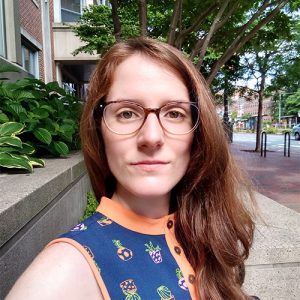
Rachel Bacon
Research Associate, 2024-Present
Postdoctoral Fellow, 2020-2024
Rachel Bacon is a sociologist and demographer. She graduated with a Ph.D. from the Sociology and Demography dual-degree program at Penn State University. She worked on the Modeling Religious Change Project as a postdoctoral fellow at the Center for Mind and Culture. Her research interests include religious growth and decline in the United States, the religion-health connection, the Seventh-day Adventist population, and immigrant dietary acculturation.
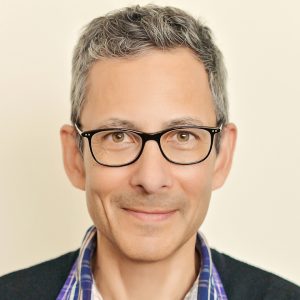
Joseph Bulbulia
Senior Research Associate, 2015-Present
Joseph Bulbulia is an evolutionary scholar of religion. He is interested in how religious commitments and institutions co-evolved and continue to affect people. Bulbulia received his PhD from Princeton University in 2001 (Thesis: Before Eden, Religion and the Evolved Mind). From 2000 to 2017, Bulbulia was a member of the Religious Studies Programme at Victoria University in Wellington, New Zealand, where he taught courses on ritual, methods and theories in the study of religion, the psychology of religion, and the biology of religion. In 2018, he became the Maclaurin Goodfellow Chair in the Department of Theological and Religious Studies in the University of Auckland. During 2014-2015, he was President of the International Association for the Cognitive Science of Religions, and is a core contributor to the New Zealand Attitudes and Values Study and Pulotu, a database of Pacific Religions. Bulbulia has been a co-editor of Religion, Brain & Behavior since 2015. For more information and links to Bulbulia’s publications see his website.
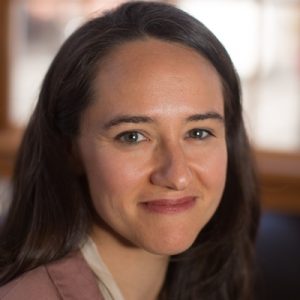
Megan Shannon
Research Associate, 2014-Present
Megan DeFranza (PhD, Marquette University) is a Christian theologian working in theological anthropology, sex, gender, and sexuality. Her first book is Sex Difference in Christian Theology: Male, Female, and Intersex in the Image of God (Eerdmans 2015). She has also collaborated with Susannah Cornwall (Univ. of Exeter, UK) et al. on Intersex, Theology, and the Bible: Troubling Bodies in Church, Text, and Society (Palgrave MacMillan) and contributed to Evangelical Postcolonial Conversations (IVP). She is working with Dr. Wesley Wildman and Dr. Patrick McNamara and a number of doctoral students on CMAC’s Sex Differences project.
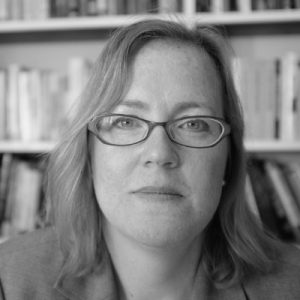
Monica Duffy Toft
Senior Research Associate, 2017-Present
Monica Duffy Toft is Professor of Government and Public Policy. She joined Oxford University’s Blavatnik School of Government after having taught at Harvard’s Kennedy School for over a decade. She was educated at the University of Chicago (MA and PhD in political science) and the University of California, Santa Barbara (BA in political science and Slavic languages and literature, summa cum laude). Prior to college, she spent four years in the United States Army as a Russian linguist. Professor Toft is a Global Scholar of the Peace Research Institute in Oslo and a member of the Council on Foreign Relations, the Minorities at Risk Advisory Board and the Political Instability Task Force. In 2008 the Carnegie Foundation of New York named her a Carnegie Scholar for her research on religion and violence. Most recently she was awarded a Fulbright Scholarship to Norway and is currently on sabbatical at Princeton University as the World Politics Fellow.

Brick Johnstone
Senior Research Associate, 2019-Present
Brick Johnstone, PhD, is a neuropsychologist and the current Senior Clinical Research Director for the Defense and Veterans Brain Injury Center at Fort Belvoir, VA. He worked as a professor at the University of Missouri before retiring in 2017, where he conducted research on the neuropsychology of the “self,” and particularly how it relates to spiritual experiences and virtues. He is the first author of Neuroscience, Selflessness, and Spiritual Experience: Explaining the Science of Transcendence (2019, Elsevier), and continues his studies focusing on neuropsychology, selflessness, and moral injury.
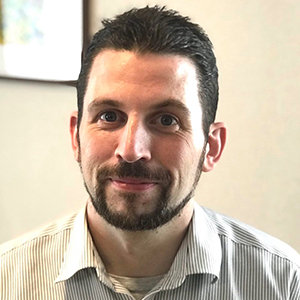
Christopher Kavanagh
Research Associate, 2020-Present
Dr. Christopher Kavanagh is a researcher at the Institute of Cognitive & Evolutionary Anthropology (ICEA) at the University of Oxford, and a lecturer at the College of Contemporary Psychology at Rikkyo University. He earned a BA in Study of Religions (2006) and an MA in Social Anthropology (2007) at the School of Oriental Studies (SOAS) in London, before moving to Oxford were he completed an MSc in Evolutionary & Cognitive Anthropology (2011) and a DPhil in Anthropology (2016) based on his thesis 'Individual Pains & Social Gains: The Personal & Social Consequences of Collective Dysphoric Rituals'. He previously worked on the ESRC 'Ritual, Community & Conflict' project (2011-2017) and now works on the ERC funded 'Ritual Modes’ project. Chris’ research focuses broadly on collective rituals and their impact on social identity & group orientated behaviours. He is an advocate for interdisciplinary collaboration and employing a combination of research methods, including field and lab based experiments, online surveys, and traditional ethnographic approaches. He specialises in East Asian syncretic religious environments and is an enthusiastic advocate for Open Science and improved standards in experimental design and data analysis. He can be reached via email or (sometimes) on Twitter.
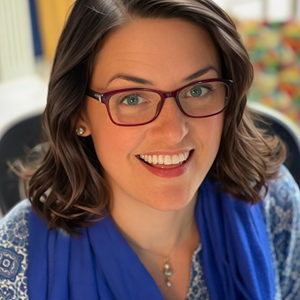
Katie Givens Kime
Research Associate, 2024-Present
Katie is a lead investigator on the Psychedelics, Religious Experience, & Health Applications Project at CMAC with Lawrence A. Whitney. Katie received her PhD from Emory University, and served as a Post-Doctoral Researcher at the Universität Bern in Switzerland, where she investigated the intersection of religious and spiritual experience, sustained recovery from substance use disorders, and psychedelics. She brings extensive experience leading collaborations between religion and the public square, previously as Director of Religion and Civic Engagement at Odyssey Impact in New York City, and now as CEO of the Alliance for Christian Media, now in its 80th year. An ordained Presbyterian minister, Katie served churches in Atlanta and New York City.
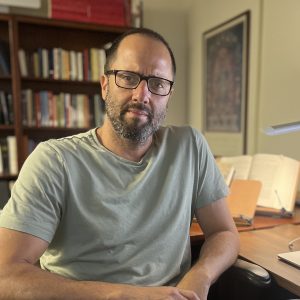
Yair Lior
Research Associate, 2020-Present
Yair Lior is a scholar of comparative religion and the scientific study of religion at Boston University’s Department of Religion. His work explores the application of scientific methodologies—such as systems theory, information theory, complexity science, and cultural evolutionary models—to the study of religion and culture. Lior specializes in the intellectual history of the Song dynasty and medieval Judaism, with a focus on the emergence of the schools of Neo-Confucianism and Kabbalah respectively. He earned an MA in the history of traditional Chinese aesthetics from Beijing Normal University (2008) and completed his PhD in Religious Studies at Boston University in 2015. Lior has published widely on topics related to cultural evolution, religious cognition, and the dynamics of complex adaptive systems in human societies. He is the co-editor of the Routledge Handbook for Evolutionary Approaches to Religion (2022), and his forthcoming monograph, Religion Evolves: A Complexity and Systems Approach to Cultural Change, is set to be published by Oxford University Press in early 2026.
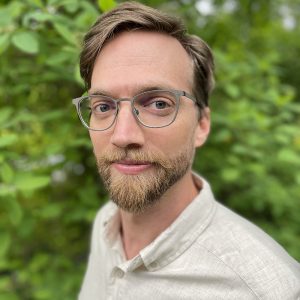
Jonathan Morgan
Research Associate, 2021-Present
Postdoctoral Fellow, 2018-Present
Lindamood Fellow, 2013-2018
Jonathan Morgan (PhD, Boston University) is a post-doctoral research fellow in the Psychology Department at the University of Colorado, Colorado Springs. His graduate work in the psychology of religion focused on the way socio-ecological characteristics, such as social density, influence the relationships between religious engagement and cognitive styles, self-regulation strategies, and mental health. At CMAC Jonathan has worked on the Neuroscience and Cognition in Parkinson's Disease and Cognitive Styles and Religious Attitudes projects and is currently the editor of the Institute for the Bio-Cultural Study of Religion's Research Review. His current work at UCCS uses empirical and natural language processing methods to study the way existential motivations influence science communication. More information about Jonathan's work is available here.

Andrew Page
Senior Research Associate, 2020-Present
Andrew Page (PhD, University of Sydney) is Professor of Epidemiology in the Translational Health Research Institute (Western Sydney University). Andrew has extensive research experience in epidemiology, psychology and public health, with particular interests in the study of suicide and mental health, the social determinants of health, injury prevention, breast cancer screening, and maternal and child health. Andrew also has interests in the application of systems science and simulation approaches to epidemiological evidence in order to inform policy and health service decision support tools.
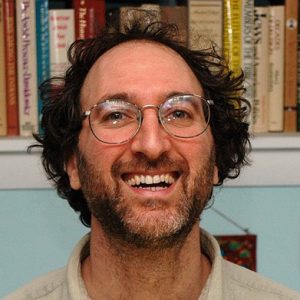
Richard Sosis
Senior Research Associate, 2008-Present
Anthropologist Dr. Richard Sosis is well known for his research on cooperation. He is particularly interested in identifying the evolutionary conditions for the emergence of cooperation within the ecology of human behavior. Recently he has focused his research efforts on the complex relationship among religion, cooperation, and trust. More information about Rich is available here.
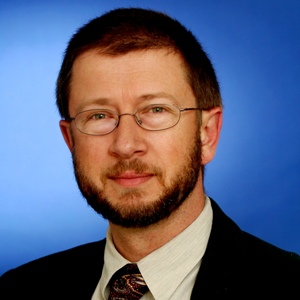
Andreas Tolk
Senior Research Associate, 2013-Present
Andreas Tolk is Professor for Engineering Management and Systems Engineering at the Old Dominion University in Norfolk, Virginia. He also holds a joint appointment with the Modeling, Simulation, and Visualization Engineering Department. He received his PhD in Computer Science in 1995 and has a M.S. in Computer Science (1988) from the University of the Federal Armed Forces, Germany. He works on the Simulating Religion project with CMAC.
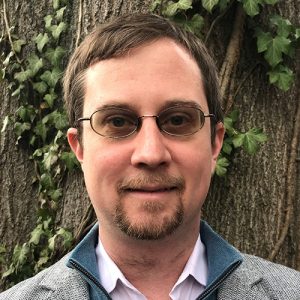
Lawrence Whitney
Research Associate, 2024-Present
Postdoctoral Fellow 2021-224
Lawrence is a Research Associate, having previously been an ACLS Leading Edge Fellow, at the Smithsonian Institution’s National Museum of American History. He is a lead investigator on the Psychedelics, Religious Experience, and Health Applications project at CMAC with Katie Givens Kime. As a CMAC Postdoctoral Fellow, he investigated ritual and mind in a science-engaged theology paradigm with support from the New Visions in Theological Anthropology project at the University of St. Andrews. Lawrence received his PhD from Boston University where his dissertation was a multidisciplinary investigation of ritual, language, and religious language. He has served as a university chaplain at Boston and Brandeis universities.
